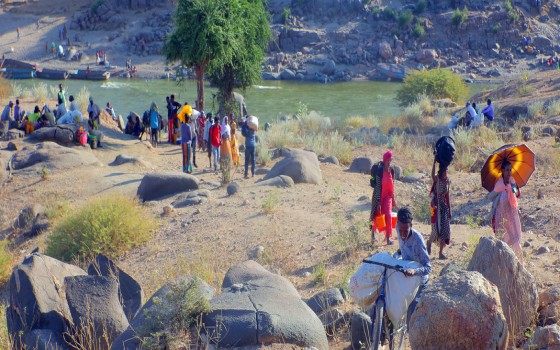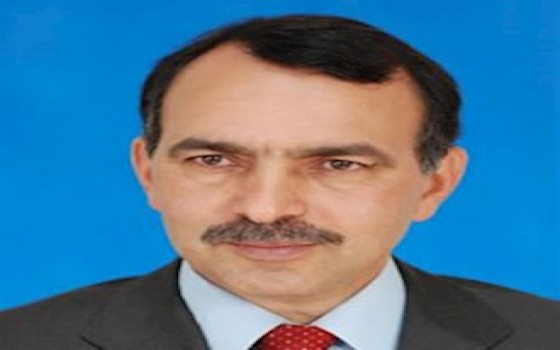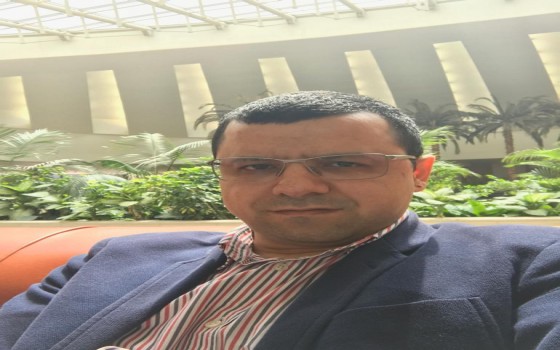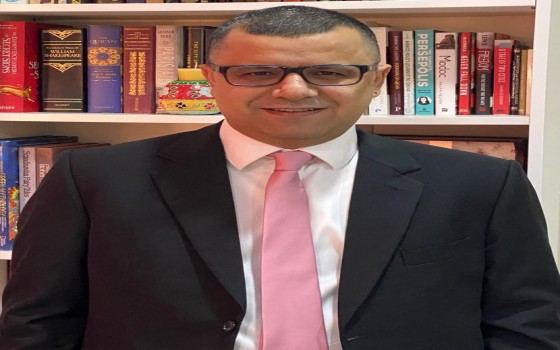
The Role of Scientific Research in Achieving Sustainable Development in Plant, Animal, and Fishery Production. Prepared by Dr. Abdel Moneim Sedky, Professor at the Research Center, Egypt

- Europe and Arabs
- Saturday , 17 May 2025 9:30 AM GMT
Sustainable development is the cornerstone of developing countries' efforts to achieve economic and social progress without harming the environment or depleting natural resources. This concept gained prominence after the 1992 Earth Summit in Rio de Janeiro, which emphasized that social justice, economic growth, and environmental conservation must go hand in hand to ensure a better future for future generations.
Sustainable development is a crucial global trend in the face of environmental, social, and economic changes. However, developing countries face complex challenges, including population pressure, natural resource degradation, and climate change, making balanced development a pressing need. Key sectors such as agriculture, food security, and livestock production are particularly affected. In rural areas, millions of people depend on nature for their food and income. Programs that integrate scientific knowledge with community development, targeting small farmers and breeders with environmentally efficient technologies, are critical. Building local capacity through education, technology transfer, and empowering women and youth is crucial for achieving sustainable development. Supporting public policies that ensure the rational use of resources and collaboration between research institutions and civil society is also crucial. Sustainable development is defined as "development that meets the needs of the present without compromising the ability of future generations to meet their own needs." It includes three interconnected dimensions: economic growth, social development, and environmental protection.
Challenges Facing Developing Countries
• Poverty and Unemployment: Many developing countries suffer from high rates of poverty and unemployment, making it difficult to achieve equitable wealth distribution and hindering human development.
• Weak Infrastructure: The absence of water, electricity, and transportation networks hinders investment and reduces the quality of life.
• Climate Change: Developing countries are among the regions most affected by the effects of climate change, despite contributing the least to carbon emissions.
• Corruption and Mismanagement: The absence of good governance leads to the waste of resources and diminishes trust in public institutions.
Opportunities to Promote Sustainable Development
1. Investing in human capital through education and training enhances individuals' capacity for creativity and innovation, and empowering youth through education and skills building enhances human capital and increases development opportunities.
2. Reliance on renewable energy: Solar, wind, and biomass represent promising energy sources in developing countries, reducing dependence on fossil fuels and enhancing energy security.
3. Women's economic empowerment: Integrating women into the labor market increases productivity and promotes inclusive growth.
4. International partnerships: Developing countries can benefit from financial and technical support from donors and international organizations to achieve the Sustainable Development Goals (SDGs).
Egypt is focusing on sustainable development through its "Egypt Vision 2030" strategy, transitioning to a green economy, strengthening social safety nets, investing in education and health, hosting COP27 in 2022, and collaborating with international partners such as the United Nations, the World Bank, and the European Union. These efforts aim to improve social justice, economic growth, environmental protection, and infrastructure development, while promoting environmental and climate action. Rwanda has successfully promoted green growth through strict environmental policies and the use of technology in agriculture and health. Bangladesh has achieved remarkable economic growth with improvements in health and education, despite limited resources. Morocco has invested extensively in solar energy and green projects.
Sustainable development in developing countries is not an option, but an urgent necessity. Overcoming challenges and balancing the three dimensions of development requires political commitment, smart investments, and genuine international cooperation. By combining efforts, a more just, prosperous, and sustainable future can be achieved.












No Comments Found